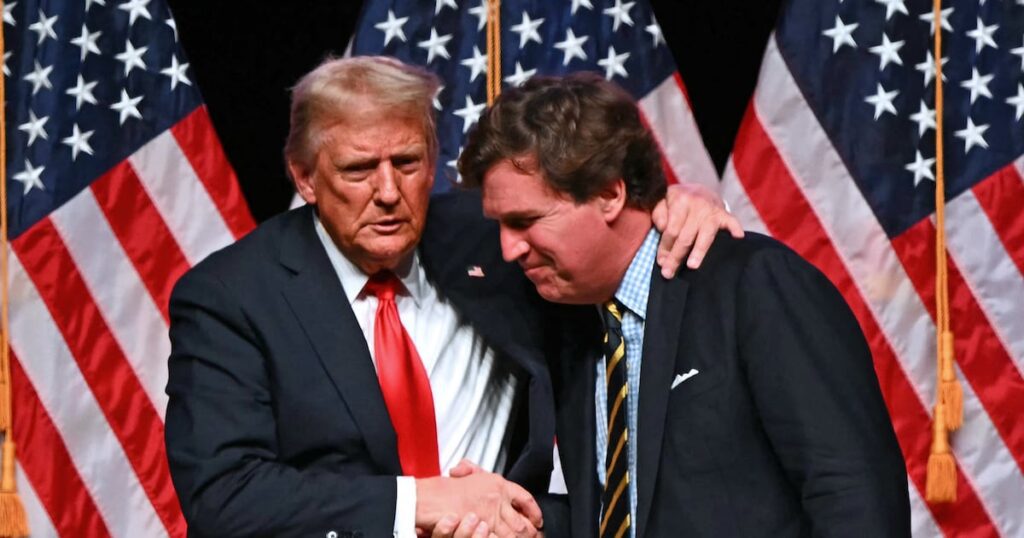Tucker Carlson’s Return to Moscow
Tucker Carlson, favored by Russian state media, visited Moscow this week, seemingly aiming to amplify Vladimir Putin’s narrative on Ukraine. Kremlin media figures hinted at a potentially more nefarious purpose behind his visit.
Interview with Sergey Lavrov
During his second trip to Moscow, Carlson interviewed Russian Foreign Minister Sergey Lavrov. The interview, aired Thursday night, provided the former Fox News host a platform to advocate for the Kremlin’s viewpoint that the U.S. should decrease its involvement in Ukraine to avert a catastrophic nuclear crisis.
Speculations of Hidden Agendas
While the discussion yielded no shocking insights, some Kremlin insiders speculate that Carlson’s visit hides a deeper motive. They suggest that while he portrays himself as a peacemaker trying to prevent nuclear war, he may also be serving as an intermediary for Putin, carrying messages to Trump. On Solovyov Live, host Vladimir Solovyov pointed out Carlson’s close ties to Trump, indicating he likely brings significant messages with him.
Escalating Nuclear Rhetoric
The timing of the interview suited the Kremlin well. Following Ukraine’s authorization to strike military targets within Russia with long-range missiles, Putin’s administration heightened its nuclear threats. State media, particularly RT, led by Margarita Simonyan, suggested that creating a contemporary equivalent to the Cuban Missile Crisis is essential for coercing America into halting its support for Ukraine.
The Interview’s Content and Direction
Tucker framed his conversation with Lavrov around the notion of an impending nuclear catastrophe that could be avoided if America retracts its support for Ukraine. The introduction on the Tucker Carlson Network highlighted the urgency of this message, stating, “We’re on the brink of global war. Why isn’t anyone talking about it?”
Lavrov’s Assertions
In the interview, Lavrov downplayed accusations that Russia is culpable for the conflict, claiming “we did not start this war.” Carlson displayed little resistance, allowing Lavrov to continue without interruption, even as Lavrov dismissed the notion of a U.S.-Russia war stemming from American arms support to Ukraine.
Missed Opportunities for Critical Inquiry
Carlson’s attempts to dig deeper into Lavrov’s statements met with non-answers. Queries about Russian casualties and high-profile cases like Alexei Navalny’s poisoning were sidestepped, with Lavrov deflecting blame and refusing to provide clarity. Carlson’s lack of follow-up questions indicates a deliberate avoidance of confrontation, aligning with the speculation that this was a carefully orchestrated discussion.


